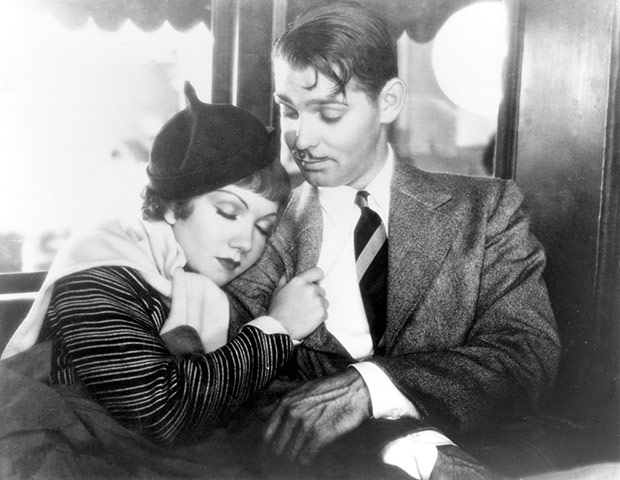
Frank Capra, 1934
“I’m the guy you slept on last night,” Clark Gable’s cad reporter smirks to haughty runaway heiress Claudette Colbert after several hours of intermittent shut-eye and passive-aggressive flirtation on a packed Greyhound bus from Florida to New York City – the cramped indignities of overnight coach travel have never seemed sexier. Greyhounds usually serve in the movies as vehicles of isolation and heartache; in Frank Capra’s unimprovably bubbly romcom, however, the vehicle initiates – hell, practically forces – intimacy. Greyhound bosses were delighted with the message, as the Oscar-winning hit sparked a surge of public interest in the company Photograph: Ronald Grant Archive
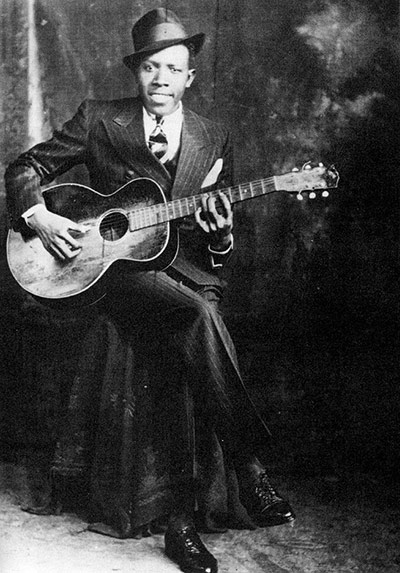
Robert Johnson, 1937
They were presumably less pleased with the brand’s placement in Johnson’s desolate, blood-dark howl of a blues suicide note, in which the singer – not far himself from his mysterious death – beats his lover senseless, is collected by the devil for his trouble, and instructs that his body be deposited by the roadside so his “old evil spirit can catch a Greyhound bus and ride”. Greyhounds travel to some pretty bleak destinations, it’s true, but Johnson – his mystique wrapped up in Faustian legend – may have been the first to suggest the humble buses are on a literal highway to hell Photograph: PR
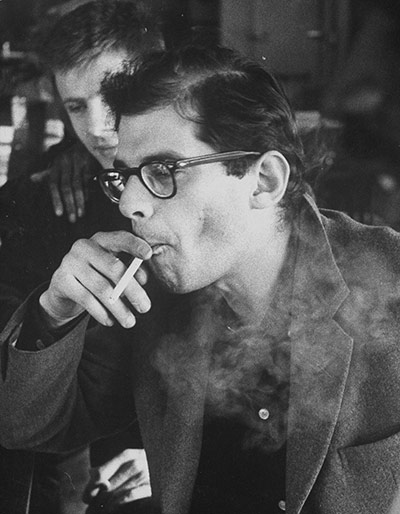
Allen Ginsberg, 1956
Greyhound stories tend to be ones of escape, but there’s drama in remaining too. Ginsberg’s 1956 poem observes a weary torrent of life passing and stalling in the luggage terminal of the San Francisco Greyhound station, where he worked for a time. It’s hard to tell whether he senses more despair in “millions of weeping relatives surrounding the buses waving goodbye” or “millions of the poor rushing around from city to city to see their loved ones”, but either way, he’s had enough: petulantly loading his last bus, he concludes this is no life for a communist. Right, it’s an escape story after all Photograph: Mario Jorrin/Time & Life Pictures/Getty Image
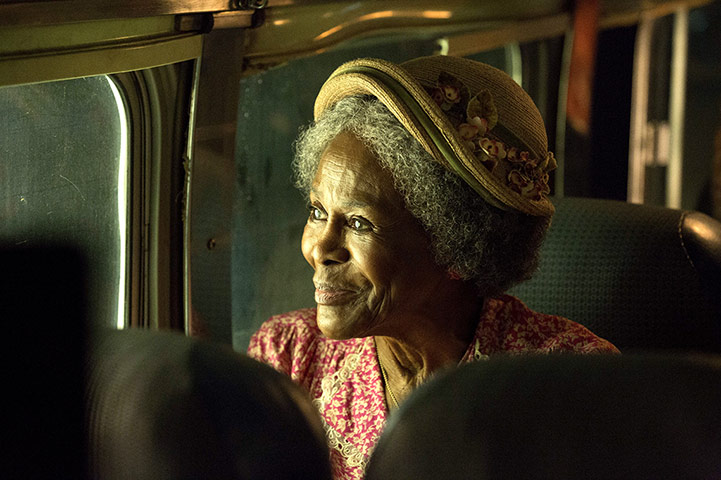
Horton Foote, 1953
Ginsberg’s poem makes fleeting mention of a “trembling old lady with a cane taking the last trip of her life”. He likely wouldn’t have admitted it, but perhaps he’d seen Horton Foote’s 1953 teleplay (successfully revived on Broadway last year, with Cicely Tyson – pictured – in the lead role), in which hymn-singing widow Carrie Watts flees the Houston home of her weak-willed son and shrewish daughter-in-law, boarding a Greyhound for one last look at her childhood town – or what little remains of it. Shot through with Foote’s typically pragmatic sentimentality, it’s the “can’t go home again” story to end ‘em all – Greyhounds can bring middle Americans that much closer to their dreams, but also to their shattered memories. Beware Photograph: Bob Mahoney
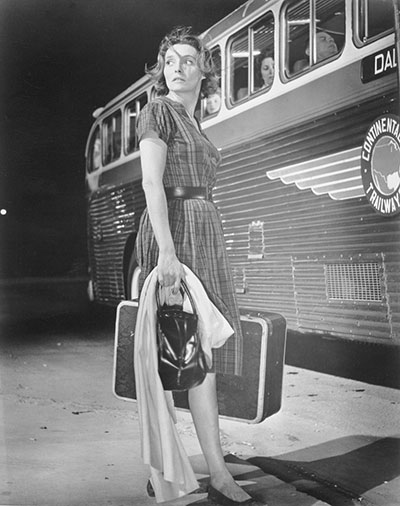
Martin Ritt, 1963
Martin Ritt’s silvery-hard, ineffably sad 1963 anti-western peaks emotionally with two successive goodbyes at a dusty Texas Greyhound station: after Paul Newman’s cocky title character attempts to rape her, long-suffering ranch housekeeper Alma (the amazing Patricia Neal) finally packs her bags and heads, in her own words, as far as one bus ticket will take her. First comes the tender farewell to fresh-faced boy of the house Lonnie; the second, to Hud himself, crackles with sexual tension and windswept disappointment. When the bus scoops her away in a matter of seconds, it’s still the man left behind whose road seems less certain Photograph: PR
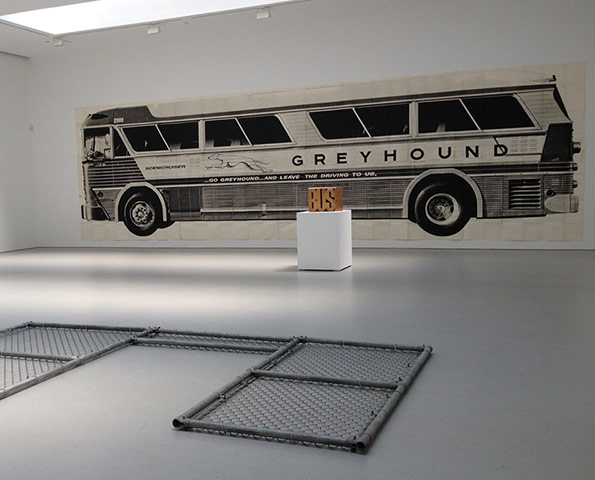
Mason Williams, 1967
Unlovely its buses may have been, but the Greyhound iconography was sufficiently embedded in America’s popular imagination by the 1960s for it to figure in the pop art movement. Yet it wasn’t Andy Warhol or Ed Ruscha who took the initiative, but comedy writer and Classical Gas composer Mason Williams, whose life-size silkscreen of a Greyhound bus (neatly folded into a carry-size cardboard box) is a spectacle of peculiarly mundane beauty. One of 200 copies duly found a home at New York's Museum of Modern Art, where the box’s thoughtful warning – “Do Not Open in the Wind” – was less than applicable Photograph: PR
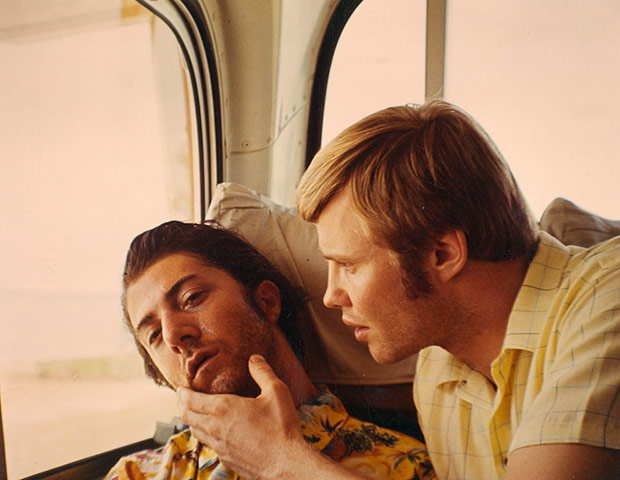
John Schlesinger, 1969
Is there a sorrier image in American cinema than that of disillusioned hustler Joe Buck (Jon Voight) cradling the dead body of his crippled, consumption-ridden pal Ratso Rizzo (Dustin Hoffman) on a Greyhound bus headed from New York to Florida? It’s the exact opposite route to that cheerier road trip in It Happened One Night, and it feels it, even if Joe is still heading where – as the twangy strains of Nilsson’s Everybody’s Talkin’ cruelly remind him – the weather suits his clothes. Continuing to Miami is the only option, shrugs the driver: time and Greyhounds wait for no man, dead or alive Photograph: Moviestore Collection/REX
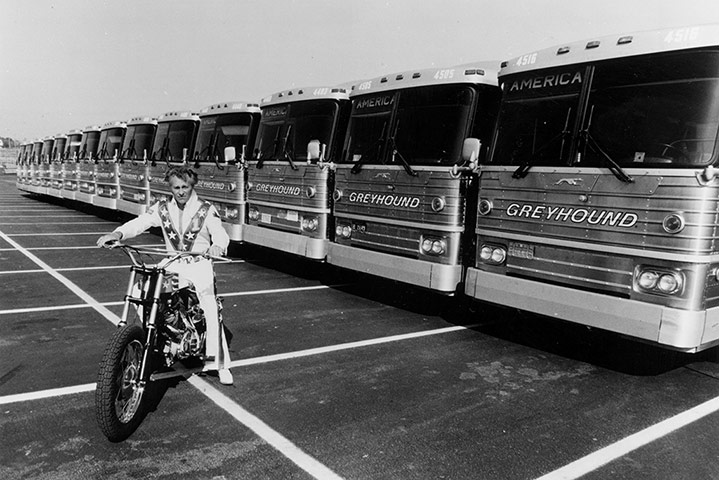
1975
Greyhounds: invaluable to cash-strapped adventure-seekers, less useful to adrenaline-saturated daredevils. Not when they’re in motion, at least. Line up 14 parked buses, however, and it’s another story: stunt master Evel Knievel emerged from a prematurely announced retirement in 1975 to successfully clear that obstacle on his trusty Harley-Davidson at an Ohio amusement park, a feat that scored the highest viewership ratings in the history of ABC’s Wide World of Sports. The next year, he cleared seven buses, and apologised to the crowd for his paltry effort. As with so much in life, when jumping Greyhounds, it’s clearly best to quit while one’s ahead Photograph: Hulton Archive/Getty Images
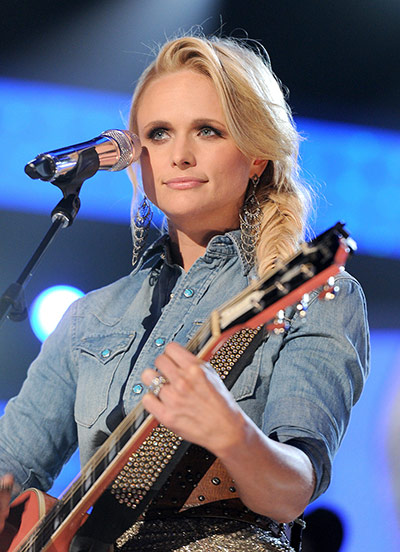
Miranda Lambert, 2005
No surprise that country and southern rock are littered with familiar silver buses on any number of dejected paths: Dickey Betts was “born on the back seat of a Greyhound”, apparently, while Sara Evans sings of a friskier experience in precisely the same location. For maximum Greyhound melancholy, however, it doesn’t get much more wistfully literal than this beauty from Nashville chanteuse Lambert’s 2005 debut album. “The way you stood starin’ as you watched me roll away,” she sings, guilt-tripping the man who wouldn’t leave the Other Woman for her, sending Lambert on the broken-hearted road, as rain smears the window. We’ve all been there Photograph: Kevin Winter/Getty Images
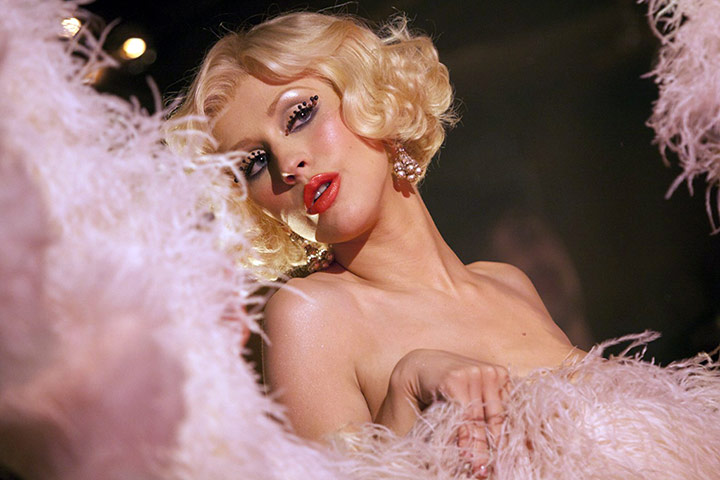
Steven Antin, 2010
It must happen in real life, but in the movies, hardly anyone buys a return ticket on a Greyhound: “You’re kidding, right?” Christina Aguilera pouts pithily when the clerk dares to suggest she might return to Somewhereville, Iowa, where the dragon-voiced diva has been stuck on pause, waiting tables and saving for the bus fare to Hollywood. Steven Antin’s gloriously tatty glitter-bomb follows in a rich tradition of showbiz musicals that have employed Greyhounds as literal vehicles to stardom, dropping off wide-eyed (and in this case, somewhat long-toothed) midwest ingenues on the Sunset Strip, clutching more dreams than dollars. Long may they continue Photograph: Allstar/Cinetext

